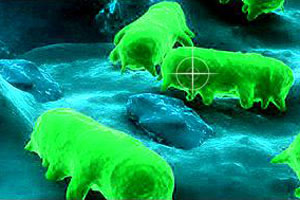Study: Using salmogenics to improve broiler performance

US pharmacuetical company, Global Green, Inc is continuing internal field trial studies to show that the use of Salmogenics, the company’s patented Salmonella Vaccine, may increase the performance of broilers, resulting in a healthier protein source and leading to increased profit for the poultry grower.
Comparing the experimental or vaccinated broilers over the controls, the studies indicated that an improved broiler performance included an average of a .126 pound weight gain, with each bird weighing an average of 5.73 pounds; Feed conversion improvement of 0.039% and mean mortality dropped to 1.406% as compared to the 3.281%, representing a 57% improvement
“As we were preparing for our 2012 World Animal Health Congress presentation, we reviewed all of our data, including a 1996 internal study by our Chief Scientist, Konky Sotomayor, DVM. We decided to disclose previously unannounced benefits of Salmogenics,” stated Dr Mehran Ghazvini, chairman and CEO of Global Green.
Research shows that while Salmogenics can reduce the levels of fecal Salmonella when injected in-ovo (in the egg) in broilers, it also suggests that performance may have improved to levels of statistical value in these chickens.
The 1996 49-day trial study was conducted on 5,120 Ross chickens injected in-ovo at 17 days of embryonic stage and kept in raised wire pens of 5 x 10 feet at a 0.82 ft2/bird density. The studies indicate improved broiler performance compared to controls when broilers are reared in relatively clean, non-stress conditions settings of battery cages, enough to warrant further research to sustain performance claims, with a feed conversion rate of .039%. Further studies will be conducted to determine the levels of enhancement that Salmogenics could produce in injected broilers.
The Salmogenics vaccine is in its last stages of testing and trials before the final United States Department of Agriculture/Food Safety and Inspection Service (“USDA”) approval for its commercial application.













